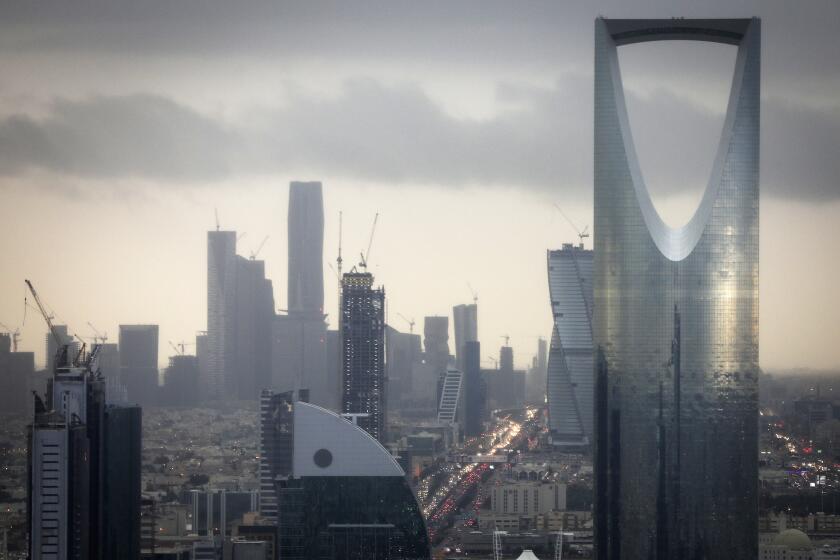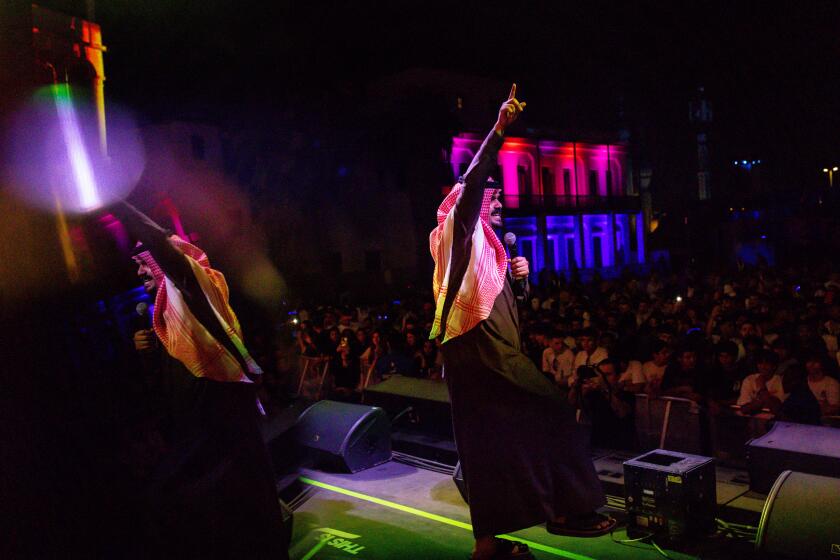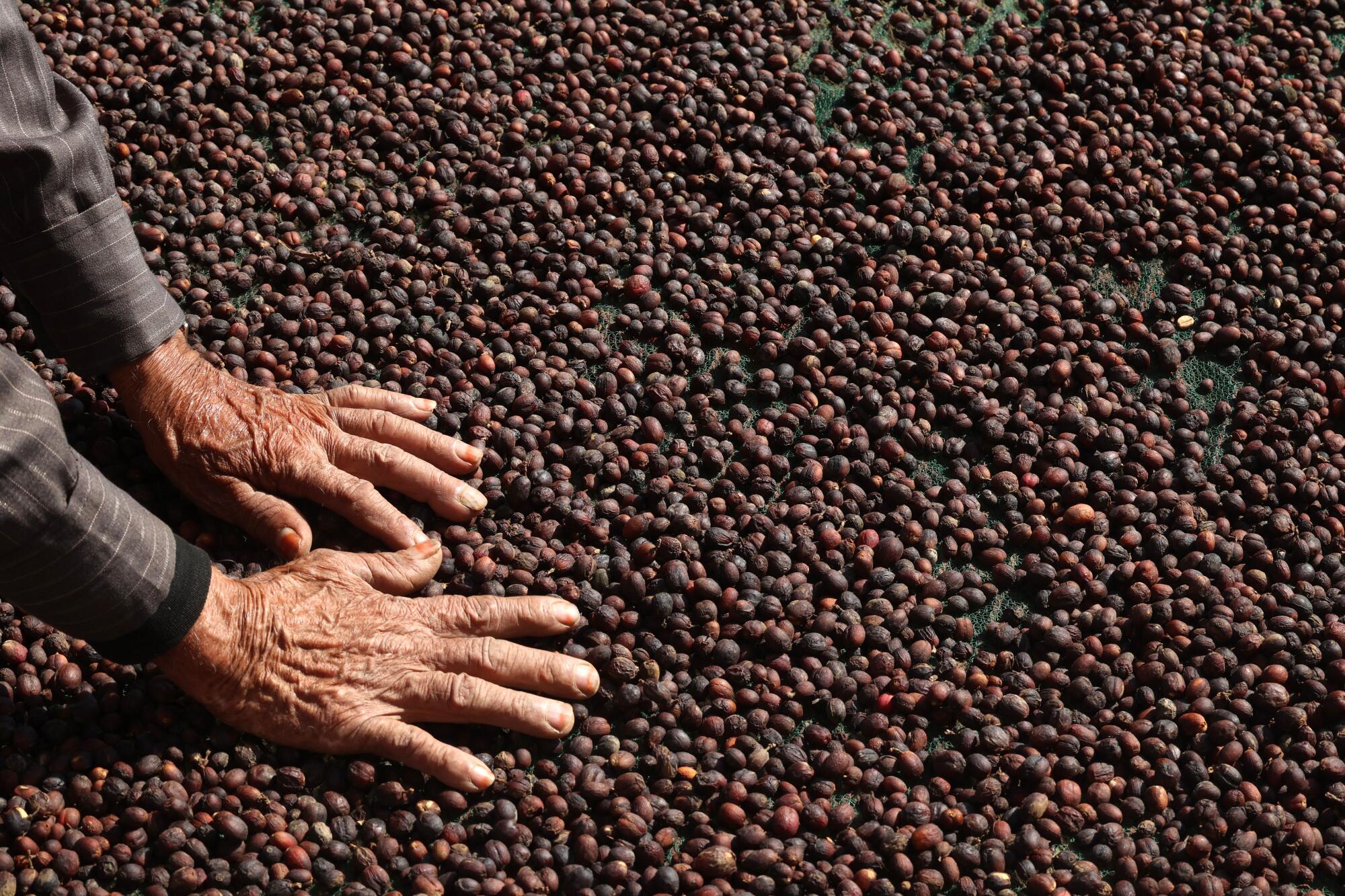
- Share via
RIYADH, Saudi Arabia — As diplomatic victories go, it may not seem like much: The United Nations recognized the Khawlani coffee bean as part of the “intangible cultural heritage” of Saudi Arabia.
But for the country’s rulers, the designation late last year capped an all-out push to instill some national pride in their beloved bean.
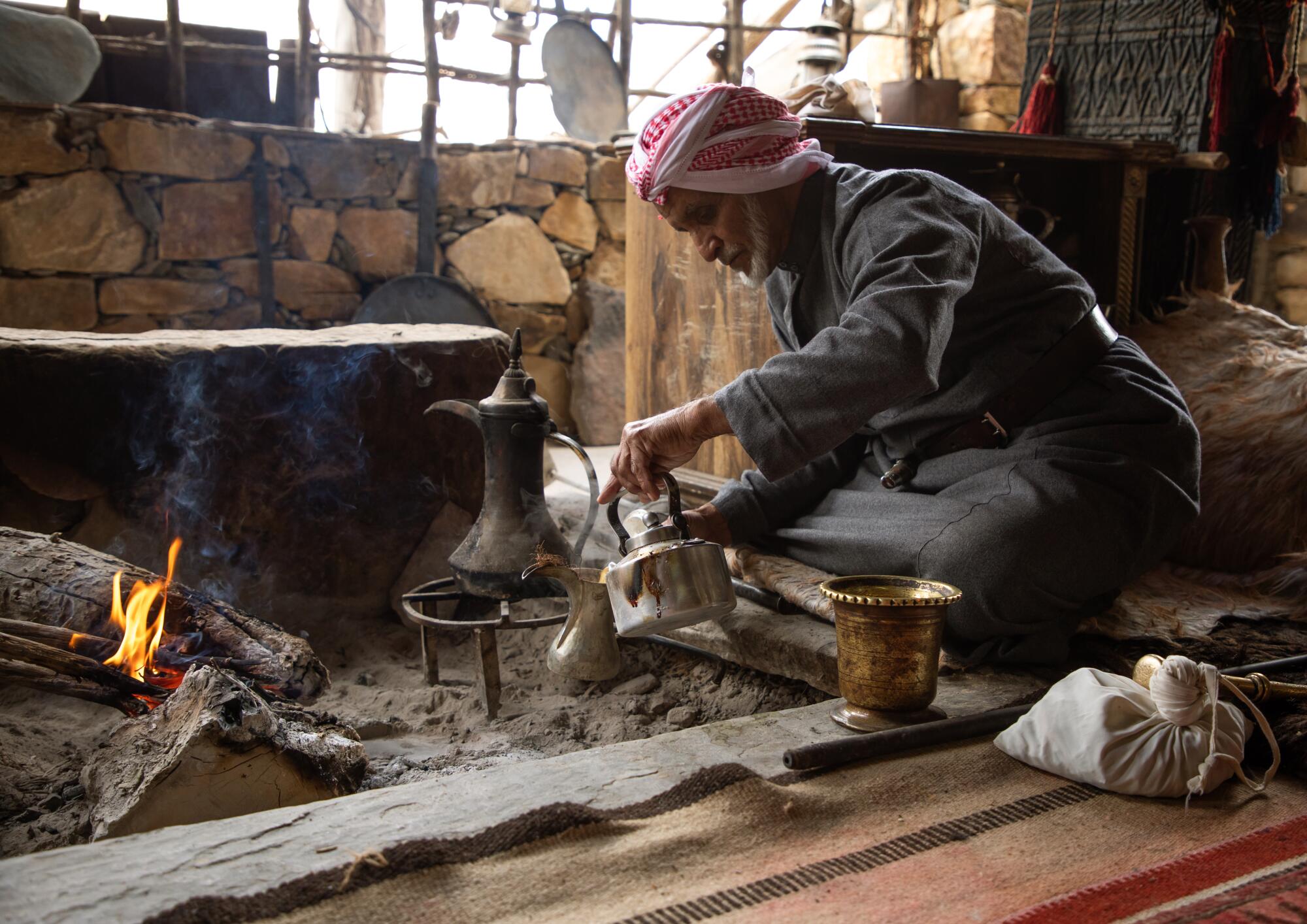
In case you missed the official declaration, 2022 was the “Year of Saudi Coffee” — after kingdom authorities issued a decree renaming the syrupy brew long known across the Middle East simply as “Arabic coffee.” Over the next decade, they plan to pump hundreds of millions of dollars into the national coffee industry.
Saudi Arabia is gambling on a gargantuan building boom to remake its image and economy, but history offers cautionary tales over such ambitions.
The coffee campaign is a small but telling part of Vision 2030, Crown Prince Mohammed bin Salman’s plan to diversify the economy and open up the culture of his country — even as he tightens his grip on power. Not only is he trying to reduce Saudi Arabia’s dependency on oil, but he’s also attempting to rebrand Saudi identity.
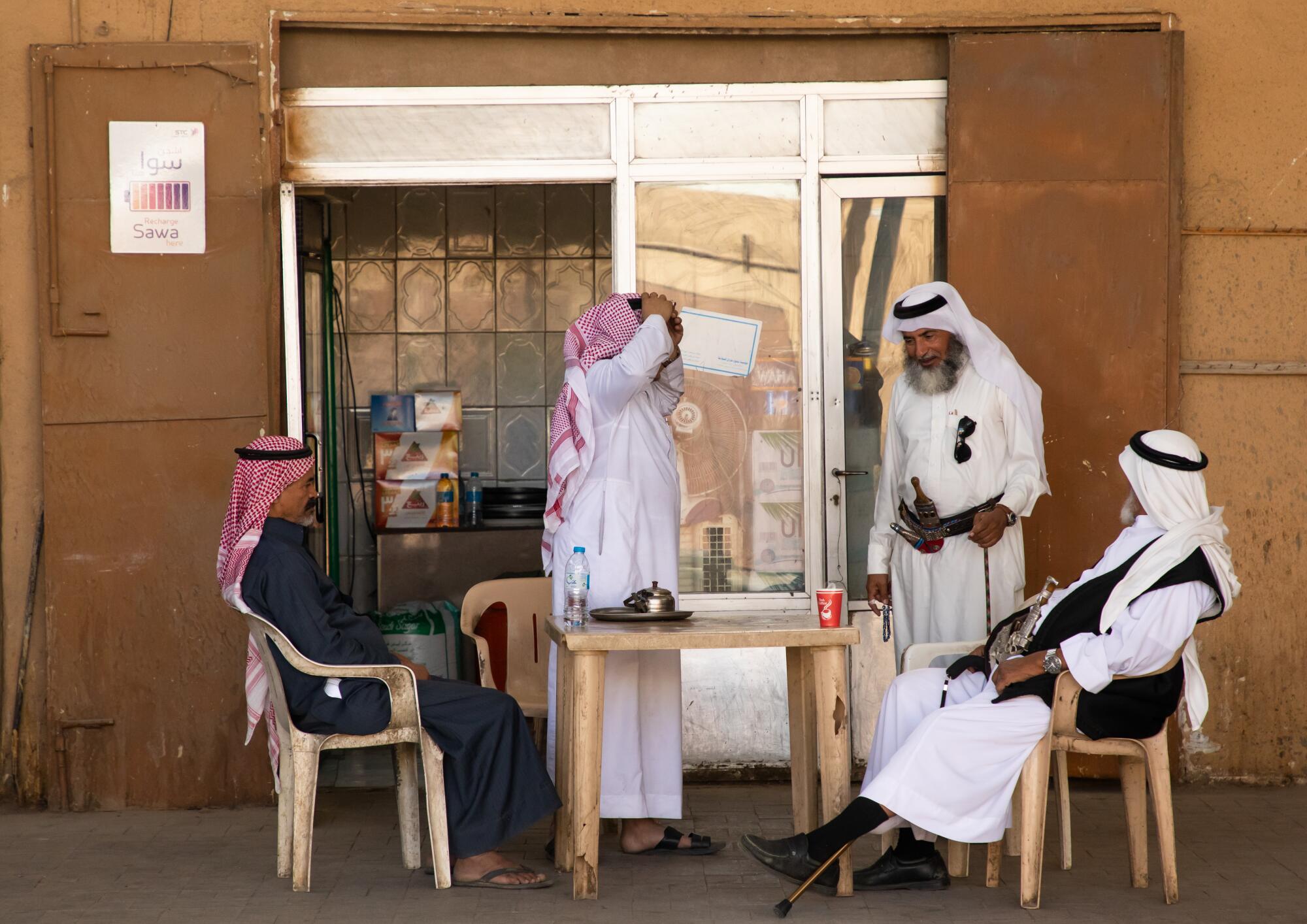
“Coffee is part of our culture for ages,” said Almohanad Marwai, co-founder and chief executive of the privately owned Arabian Coffee Institute in Riyadh. “We’re a people that drink it morning, afternoon, at night; we give it to guests. It’s prepared the Saudi way, with Saudi tools, for Saudi occasions.”
The prince’s emphasis on culture amounts to an assault on Wahhabism, the puritanical brand of Islam whose adherents allied themselves with the royal family in 1744 and propelled its rise to power.
When the Kingdom of Saudi Arabia was created in 1932, the clerics gave the government the religious imprimatur to demand obedience from citizens. In exchange, the monarchy allowed the Islamists to dominate public life.
“The influence of the religious class downplayed nationalism and symbols associated with the nation,” said Ali Shihabi, a political analyst close to the Saudi royal court. “It always upheld symbols associated with Islam, so Saudis didn’t grow up with national symbols like others did.”
National Day, marking the proclamation of Saudi Arabia as a kingdom in 1932, was not an official holiday, and imams would go so far as to issue fatwas against celebrating it, according to Mohammed Alyahya, a Saudi commentator who is a senior fellow at the Hudson Institute think tank in Washington.
“The entire idea of national pride in Saudi Arabia was about Pan-Islamism,” he said, explaining that Saudi Arabia was to be celebrated not as a nation-state but as the land of Islam’s two holiest mosques — in Mecca and Medina — and as the heart of a larger Islamic community.
And because Wahhabist clerics saw preservation of heritage as a form of idolatry, most historic sites — even religiously significant ones such as the house where the prophet Muhammad is thought to have been born — were neglected or even bulldozed to make way for expansion of cities.
Young Saudis are letting loose at new state-sponsored social and cultural events even as the government cracks down harshly on political dissent.
Traditions were ignored too. Though the U.N. launched its “Representative List of the Intangible Cultural Heritage of Humanity” in 2008, Saudi Arabia’s first entries didn’t appear until 2015.
Not coincidentally, that’s the year King Salman came to power and placed his son, Prince Mohammed, in charge.
Among the prince’s first moves was to make National Day an official holiday. Last year, he created Founding Day, which commemorates the beginning of the Saudi state in 1727.
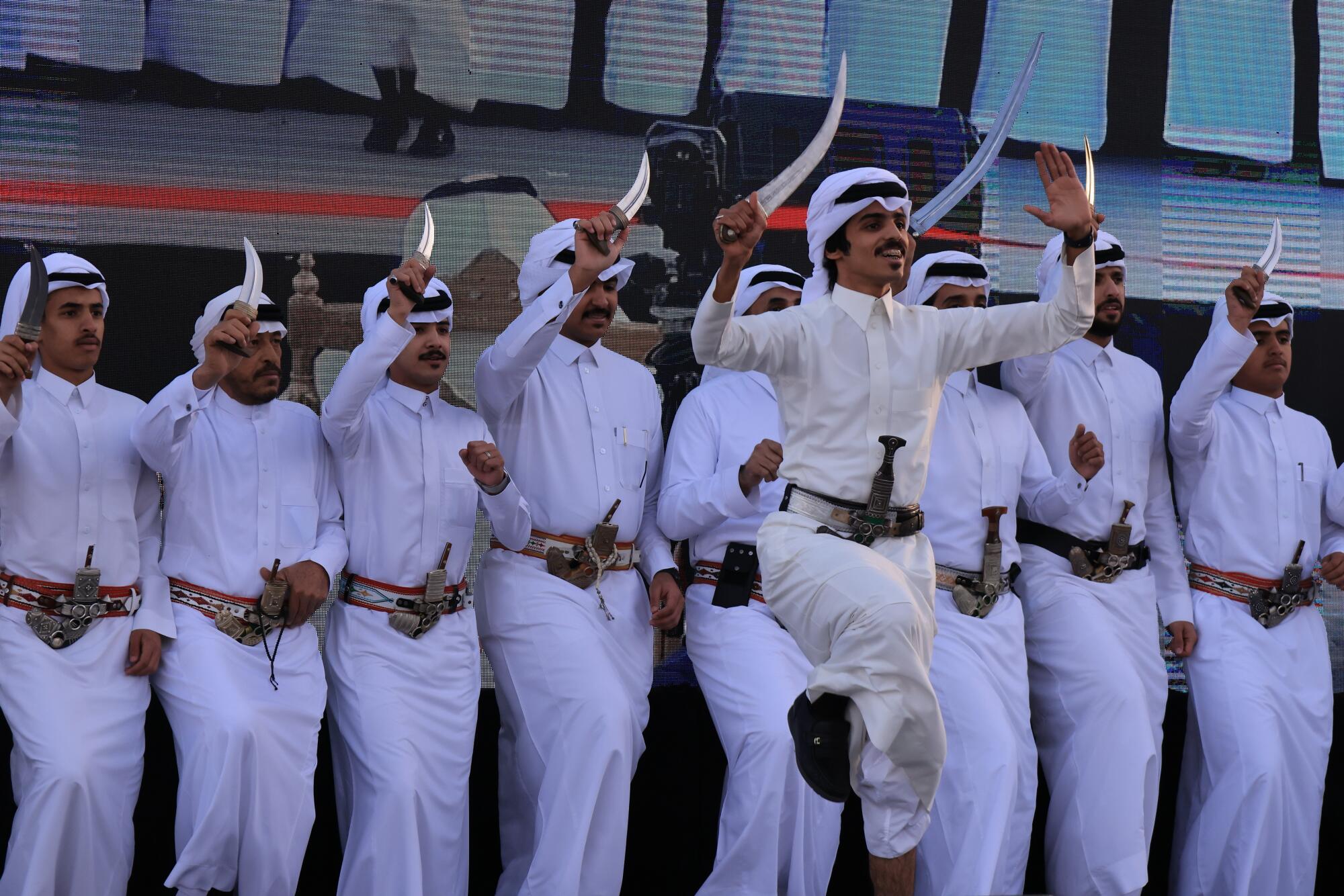
Through the country’s Public Investment Fund, he’s also pumped tens of billions of dollars into developing and touting pre-Islamic heritage sites including Al-Ula, an ancient oasis in the country’s northwest, and Diriyah, a so-called giga-project built around the palace of the first Saudi state.
For the record:
6:15 p.m. Feb. 19, 2023An earlier version of this article incorrectly stated that with the addition of the Khawlani coffee bean, Saudi Arabia had 11 contributions to the United Nations heritage list, which included an indigenous species of cat. The Saudi contributions totaled 12 and did not include the indigenous cat species.
The addition of the Khawlani coffee bean to the heritage list brings Saudi Arabia’s contributions to 12, including a type of dance, falconry and camel calling.
The rapidly expanding Ministry of Culture now has no fewer than 11 commissions to promote Saudi traditions in music, film, visual arts, museums, theaters and fashion.
It’s not the first time a Saudi royal has tried to reshape the national identity. In response to backlash for its support of the United States in its 1991 and 2003 invasions of Iraq, the government attempted to sideline the religious establishment and promote a heritage based on the country’s history rather than Islam.
Experts say what’s different about Mohammed’s current strategy is his push to silence all criticism, religious-minded or otherwise.
In 2016, he neutralized the mutaween — the notorious religious police who would chase down people for alleged moral infractions — by stripping them of legal powers and restricting them to awareness campaigns. A year later, authorities arrested more than 20 clerics and intellectuals on charges of espionage and contact with the Muslim Brotherhood, the transnational Sunni Islamic movement that the government considers a terrorist organization.
Then came the infamous killing and dismemberment of Saudi commentator and U.S. resident Jamal Khashoggi at the hands of a government strike team that the CIA determined was following orders from the crown prince — despite his denial.
Use of the death penalty in Saudi Arabia has nearly doubled since 2015, according to human rights groups. Last year, the government executed 148 people — including 81 on a single day — on a variety of charges, including attending demonstrations.
The crackdown is “part of the readjustment of society from total dominance of culture and narrative by the religious class to a more normal situation common with other nations,” said Shihabi, the analyst. “Of course, the religious class isn’t pleased, but they’re kept in line by the government.”
He said the clerics have come to recognize that the culture campaign has far more support than they expected.
That may stem from the fact that the population is young — with two-thirds of the country’s 36 million people under 35.
But many Saudis are also eager to see their country compete with its Gulf rivals Qatar and the United Arab Emirates. Though the latter are better known for relentless commercial spectacle a la Dubai, they’ve also used petrodollars to will into being — if not import wholesale — museums, artist commissions, sports teams, orchestras and other attractions meant to bring global attention and instill national pride.
They are happy to see the “sleeping lion” — as Alyahya described his country — finally start to wake up.
Saudi leaders also hope the focus on culture will pay off economically.
They expect investments in culture to create 100,000 jobs and bring a 3% increase to the country’s annual gross domestic product by the end of the decade. Much of that is expected to come from Saudis spending their salaries at home rather than traveling abroad for cultural offerings.
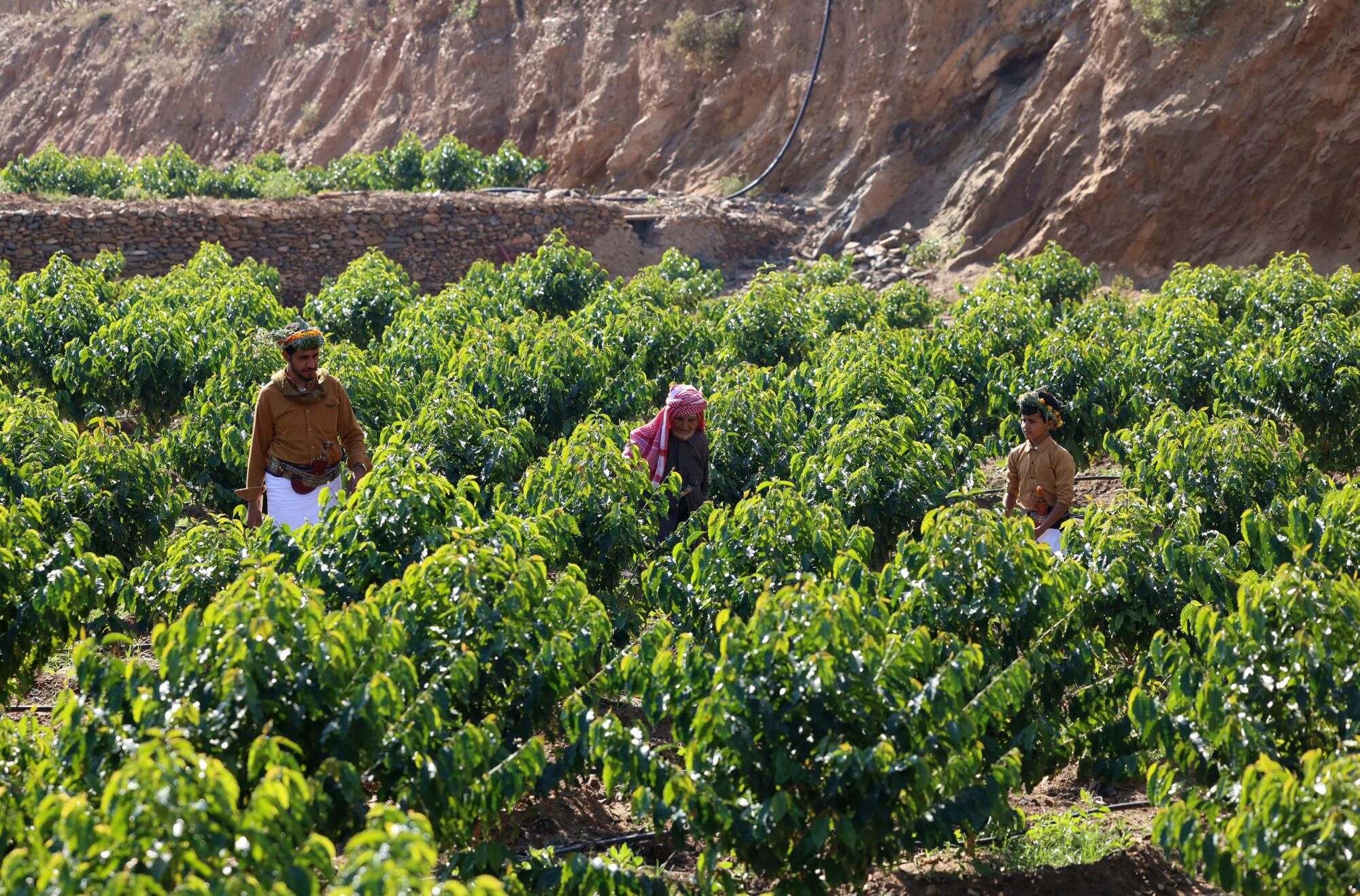
The investment in coffee will flow through the newly created state-owned Saudi Coffee Co., whose slogans include “Coffee has a homeland and a story to be told.”
With a mandate to raise annual production to 2,500 tons — more than eight times the current total — by 2030, it plans to develop farms in the country’s “coffee belt” region.
“Those areas have a huge heritage in coffee but it wasn’t given the right attention,” said Nouf Qethami, a brand manager with the company. “Farmers weren’t motivated enough.”
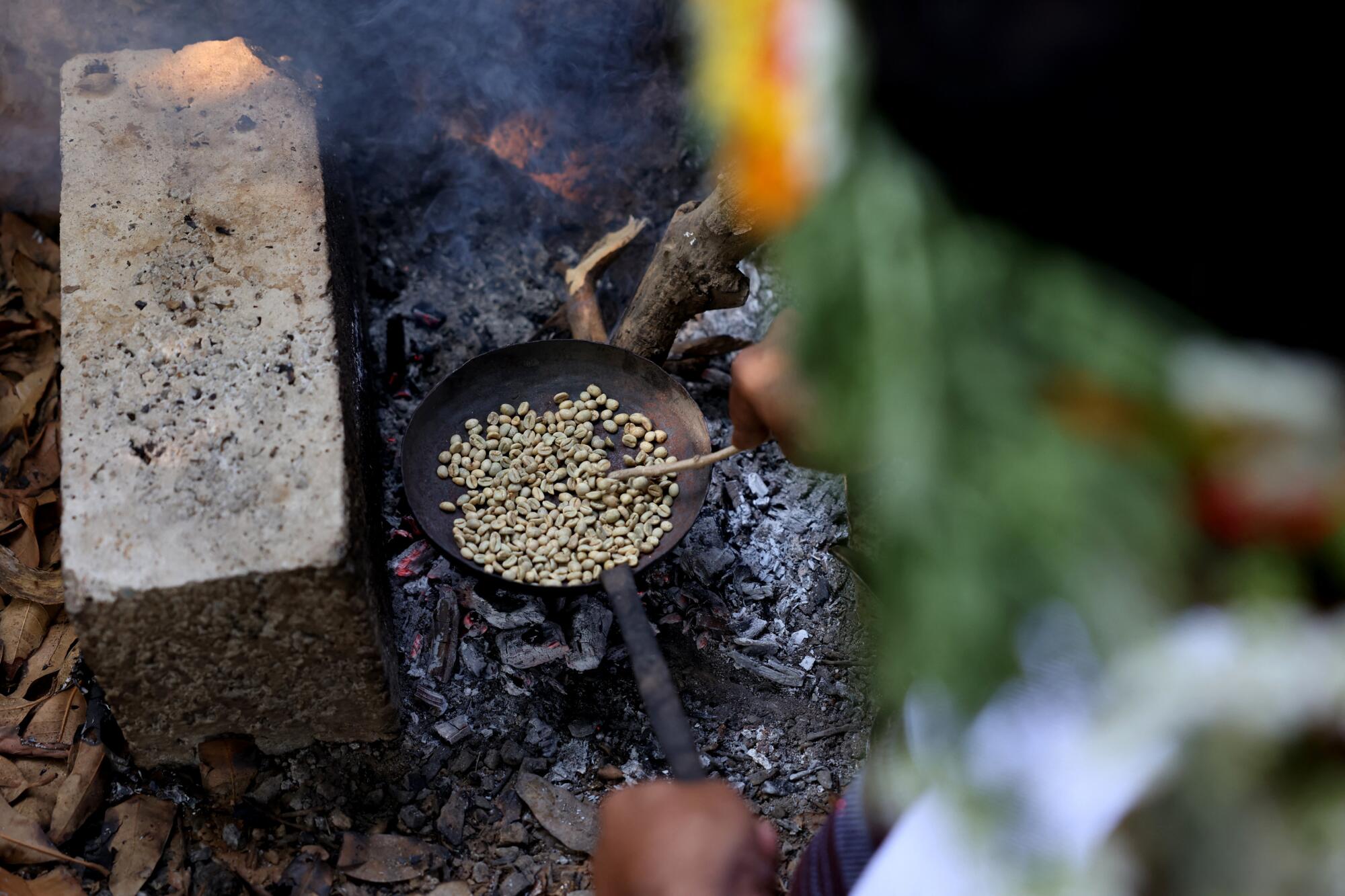
The company is also training 1,000 Saudis on all aspects of coffee production, from bean cultivation and harvesting to grinding and brewing techniques. There are also plans to open 25 cafes around the world to promote Saudi coffee.
But the first step is to sell it at home. Though the loosening of social mores has boosted the number of local coffee shops, many are purchasing their beans internationally, Qethami said.
“They say they want Colombian or Ethiopian,” she said. “We want to provide them with local options.”
More to Read
Sign up for Essential California
The most important California stories and recommendations in your inbox every morning.
You may occasionally receive promotional content from the Los Angeles Times.
